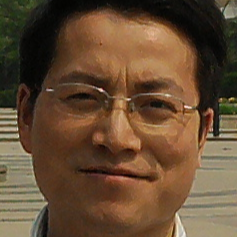International Journal of Intelligent Systems and Applications (IJISA)
IJISA Vol. 5, No. 6, 8 May 2013
Cover page and Table of Contents: PDF (size: 673KB)
Pattern Formation in Swarming Spacecrafts using Tersoff-Brenner Potential Field
Full Text (PDF, 673KB), PP.1-11
Views: 0 Downloads: 0
Author(s)
Index Terms
Formation, Swarm, Tersoff-Brenner, Potential Field, Hexagonal Lattices, Self-Organizing
Abstract
We present a distributed control strategy that lets a swarm of spacecrafts autonomously form a lattice in orbit around a planet. The system, based on the artificial potential field approach, proposes a novel way to divide the artificial field into two main terms: a global artificial potential field mainly based on the famous C-W equations that gathers the spacecrafts around a predefined meeting point, and a local term exploited the well-known Tersoff-Brenner potential that allows a spacecraft to place itself in the correct position relative to its closest neighbors. Moreover, in order to obtain convergence from all initial distributions of the spacecrafts, a dissipation term depended on the velocity of agent is introduced. The new methodology is demonstrated in the problem of forming a hexagon lattice, the structure unit of graphite. It is shown that a pattern formation can operate around a planet. By slightly changing the scenario our method can be easily applied to shape other configurations, such as a regular tetrahedron (with central point), the structure unit, etc.
Cite This Paper
Zhifeng Zeng, Yihua Tang, Shilu Chen, Min Xu, "Pattern Formation in Swarming Spacecrafts using Tersoff-Brenner Potential Field", International Journal of Intelligent Systems and Applications(IJISA), vol.5, no.6, pp.1-11, 2013. DOI:10.5815/ijisa.2013.06.01
Reference
[1]OSIANDERR, GD, JLC. MEMS and Microstructures in Aerospace Application [M]. CRC Press, 2006.
[2]Dario Izzo, Lorenzo Pettazzi. Autonomous and Distributed Motion Planning for Satellite Swarm [J]. Journal of guidance, control and dynamics, 2007, 30(2): 449 - 459.
[3]Derek J. Bennet, Colin R. McInnes. Distributed control of multi-robot systems using bifurcating potential fields [J]. Robotics and Autonomous Systems, 2010, 58(3): 256 - 264.
[4]http://en.wikipedia.org/wiki/Birfurcation_theory.
[5]C. Pinciroli, et al. Self-Organizing and Scalable Shape Formation for a Swarm of Pico Satellites [R]. IRIDIA – Technical Report Series, Technical Report No. TR/IRIDIA/2008-009, 2008: 1 – 8.
[6]Burkert U., Allinger N.L. Molecular Mechanics [M]. American Chemical Society, No. 177, 1982.
[7]McQuade, F. Autonomous Control for On-Orbit Assembly Using Artificial Potential Functions [D]. Ph.D. Thesis, Faculty of Engineering, University of Glasgow, Glasgow, Scotland, U.K., 1997: 89 - 90.
[8]Brenner D. W. Empirical potential for hydrocarbons for use in simulating the chemical vapor deposition of diamond films [J]. Phys Rev B, 1990, 42(15): 9458 - 9471.
[9]W.H. Clohessy, R.S. Wiltshire. Terminal Guidance System for Satellite Rendezvous [J]. J. Aerospace Science, 1960, 27(9): 653 - 674.
[10]McQuade, F. Autonomous Control for On-Orbit Assembly Using Artificial Potential Functions [D] Ph.D. Thesis, Faculty of Engineering, University of Glasgow, Glasgow, Scotland, U.K., 1997: 39 - 40.
[11]He L. Research of the mechanical properties of carbon nanotubes in the micro/nano electrical and mechanical system [D]. M.Sc. Thesis, School of Mechanical Engineering, Northwestern Polytechnical University, Xi'an Shaanxi, P. R. China, 2004.



